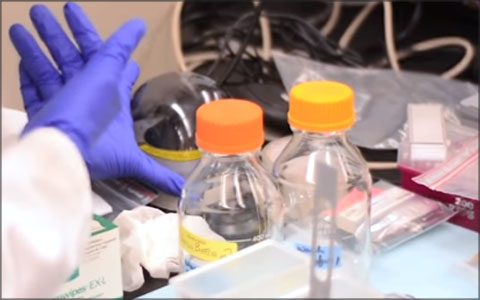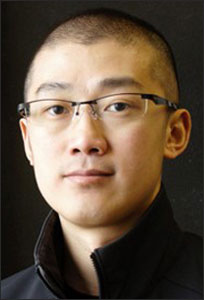Each spring Johns Hopkins honors exceptional graduate students and postdoctoral fellows at the annual Young Investigators’ Day celebration. The day is meant to celebrate the achievement and hard work of not only the award winners, but of all Johns Hopkins’ research trainees. This year two BME PhD candidates and a BME MD PhD candidate were selected to receive distinguished awards. The awards, named after notable researchers, including many who were former faculty members or graduate students at The Johns Hopkins University, were granted in recognition of outstanding research.
2016 Johns Hopkins Young Investigators Award winners


David Herzfeld — Martin and Carol Macht Award
David Herzfeld, PhD candidate, has been working under the mentorship of Dr. Reza Shadmehr. He was selected to receive the Martin and Carol Macht Award. David’s research in the Laboratory for Computational Motor Control suggest the cerebellum is integral for the control of eye movements and, when examining a large population of cells in the cerebellum, these cells provide a representation of the speed and direction of the eye.
In 2015 David was honored with a Mette Strand Award at Johns Hopkins Young Investigator’s Day. He was also named a 2015 Siebel Scholar.

Shin Rong Lee — The David T. Yue Research Award
Shin Rong Lee is a biomedical engineering MD PhD student working in the Calcium Signals Lab. A large portion
of Shin’s research focuses on the brain-predominant voltage-gated calcium channel Cav2.1, a membrane protein that regulates the flow of calcium ions into cells. His work suggests an important role forCav2.1 CDF in neuronal physiology, and lays the groundwork for future mechanistic and pathophysiologic investigations regarding CDF in various native contexts. View Lee’s research paper: Large Ca2+-dependent facilitation of Ca(V)2.1 channels revealed by Ca2+ photo-uncaging.

Xindong Song — The Bae Gyo Jung Award
PhD candidate Xindong Song has been working in the Xiaoqin Wang Lab under the guidance of Professor Xiaoqin Wang. He was selected to receive the Young Investigators’Day Bae Gyo Jung Award. Song’s research uncovered how mammals, specifically the marmoset monkey, perceived pitch. His research findings showed behavioral evidence that marmoset monkeys exhibited all the primary features of human pitch perception mechanisms. The study paves the way for future research into the neuronal circuitry underlying human-like pitch perception.
Congratulations to each of the award winners and all Johns Hopkins’ research trainees.
